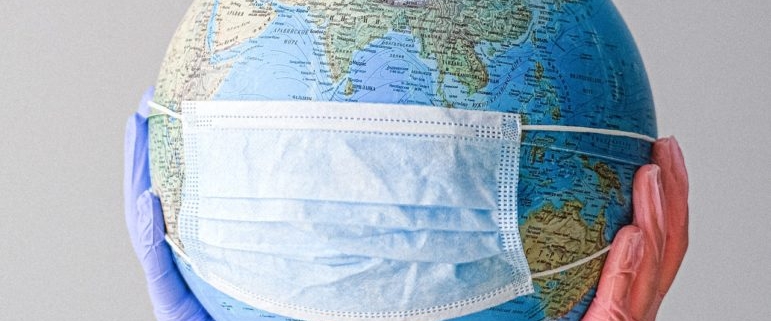Let’s Talk About the Pandemic
by Kellie Medendorp, LCSW, CFRC
March 2024
It’s been four years since everyone across the globe encountered the same fear and uncertainty all at the same time. We all had one common enemy together…and we were terrified. Especially in those first few months, we had no idea what we were up against, how to protect ourselves, or how to fix it. As a firefighter, this shook me to my core because fires, natural disasters, EMS calls, and car accidents didn’t stop just because a pandemic was happening.
Emergency personnel were all faced with the same predicament and the same decision. But for most of us, there was only one choice. In the town where I’m a firefighter, there aren’t very many of us that volunteer. While I’m sure we each took a pause to comprehend the hazards we would be exposed to, we remained committed to responding to incidents regardless of the pandemic.
I recently started watching National Geographic’s documentary “9/11: One Day in America” and found myself relating to the idea that as a responder, there’s no turning away. The chief in command on 9/11/2001 looked up at the massive structures the World Trade Centers were, saw huge clouds of billowing smoke and fire, was aware of the millions of people in the area, and thought “I will help.” If I could talk to all of the emergency responders out there about how they faced the pandemic, I would imagine a similar thought process for them occurred as well. We are the people that train for the worst of the worst. We have a unique set of skills and knowledge the general public doesn’t have to be burdened with so they can continue to live their lives.
The Consequences of the Pandemic on Responders
Through my current work with responders as a therapist and my network of responder peers, what I’ve come to learn is we have all been left with varying degrees of trauma from the pandemic. Speaking for myself, I would say I’ve been able to return almost to my baseline prior to the pandemic. The only triggers I notice at present are when I actually test positive for COVID-19 or when I put a mask on for EMS assist calls with the fire company. However, those are extremely manageable triggers and I was lucky to not have had my life too personally affected by the pandemic.
Medical personnel, on the other hand, have been significantly impacted by the pandemic. For most of them, the fear and anxiety still exists four years later. EMS, nurses, doctors, technicians, security, medical examiners, and others continued to work throughout the pandemic- remote work was not an option. They witnessed MANY soul-crushing losses, multiple times a day, and day after day for YEARS. Even as the CDC’s guidelines relaxed for the rest of us it did not instill confidence or safety for this population of emergency responders. While some of my clients have just started to feel comfortable without a mask on, it doesn’t mean they’ve reached their personal baselines of well being.
How Do Responders Recover and Move On?
My honest answer to this question is “I don’t know.” I’ve never been through a pandemic before. In college and graduate school they didn’t teach me how to counsel the public during a global health pandemic, let alone the people on the front lines responding to it and witnessing first hand all of the trauma, burn out, helplessness, and hopelessness I know many of them experienced.
What I do know is every single responder’s experience is different. When they open up about how the pandemic affected them and continues to affect them, it gives me an opportunity to learn and problem solve with them. Sometimes it means going back to some of those memories to help them reprocess what happened now that they are in a more stable place. It could mean reevaluating what their version of self care is and adjusting it in a way that gives them peace, relaxation, and a break. Or maybe it’s helping them cultivate the courage to take a step back in their field, a leave of absence, or a career change entirely.
To all of my medical responders out there that might be reading this, now is the time to accept help instead of just giving it. You have all done so much more than most of us will ever know. When you’re ready, I will help.


